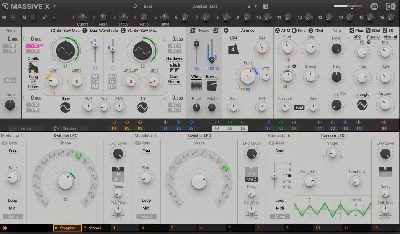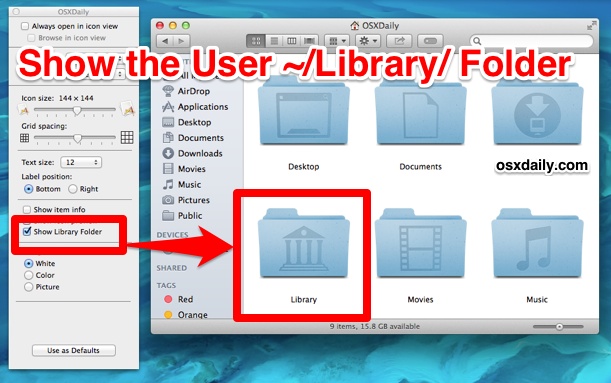2017-12-8 Support Communities / Mac OS & System Software / macOS High Sierra. Found yesterday on developers forum - try to delete one folder in the time mashine preferences, may be it will help against loosing of free space. Question: Q: macOS High Sierra.
| Click here to return to the 'Remove hidden core dump files to restore drive space' hint |

If you add 'limit coredumpsize 0' into your ~/.tcshrc or ~/.cshrc file, it should eliminate those files
2020-4-2 Using the search box that sits in the top right corner of a Finder window defaults to searching everything on a Mac. Sure, you can click the center Search option after the fact to narrow it down to the current folder, but often times you’re using that search feature thinking it will look in the current folder first but it actually searches every single file and folder on the Mac for matches. 2020-3-18 Your Photos library holds all your photos, albums, slideshows, and print projects. If your library is large, and you want to free up storage space on your Mac, turn on iCloud Photo Library and use Optimize Mac Storage, or move your library to an external. Today’s How-To is focused on something very specific but with a lot of optimization potential: trimming down your Mac’s photo library. Particularly after installing OS X 10.10.3 with Apple’s. Jan 12, 2020 The Library folder contains many of the resources that installed applications need to use, including application preferences, application support documents, plug-in folders, and ever since OS X Lion, the files that describe the saved state of applications. In recent versions of its operating system, your Mac has been hiding the Library folder.
rm -f /cores/core.*
to your crontab file, along with relevant scheduling information, you prevent the core files from building up over time. More about cron and crontabs in this hint.
If you want to have the core files for debug purposes, I'd rather delete them with this command in the crontab:
/usr/bin/find -name /cores/core.* -ctime 1 -delete
This only deletes core files older than 24 hours.

Um, either you or some other program must have turned that on. Apple's default is for core dumps to be limited to 0 bytes, which means you should have none. What were the dumps for?
Mac Os X Library Folder Huge Free
I'm the author of this 'hint'. I have no idea on what these were for. Have you an idea on how to turn this feature off? I don't remember having turned it on any time, but i try many utilities, so i might have done that by accident. It happened again, though since i deleted that gigabyte.
Ya, I didn't have any at all, and I do recall reading or seeing somewhere that cores were supposed to be eliminated by default with the OS install. I'm not sure how they would get turned on by accident, but on two machines I found none at all.
I found nothing in my cores directory. Seems to be empty. I'll take that as a good sign, although I'm always looking for ways to gain more HD space...
You can check your current limits with the 'ulimit -a' command in bash (type 'help ulimit' for more info) or the 'limit' command in tcsh.
The core should be zero. I did some basic hunting and didn't find any obvious setting in /etc, although you could also check the files /etc/csh.* or /etc/profile* and /etc/bashrc to see if there is a limit command in there that something or someone put in.
The place to look for is in /etc/rc.common, at the end of the file, here's the relevant snip :
# Enable coredumps if requested.
##
if [ '${COREDUMPS:=-NO-}' = '-YES-' ]; then
ulimit -c unlimited
fi
To make sure there is nothing wrong with your defaults you should grep all files involved in startup (etc/rc*, StartUpItems...) for ulimit.
My /cores directory was completely empty and I like it that way :-)
Wow, I don't know how this escaped my 'grepping' :)
Anyway, just to complete the thought for those that don't like tinkering that much, placing this line in your /etc/hostconfig file will **enable** core dumps:
COREDUMPS=-YES-
Make sure it's either not there (the default) or is set to -NO- if you don't want them.
One file, hidden (named with . previous to characters) and less than 4K in size. Good spot to watch, and investigate for missing space, but not applicable here.
Personally, my big drive-eater is all the legacy apps and OS versions I've been maintaining on my system until recently. Three partitions on my OEM drive ate up 10 GB of space for old proggies and systems. I've recently used Carbon Copy Cloner to clone those to disc images on my new Maxtor (for back-up purposes, in case I actually need something) and re-formatted the whole thing.
<sarcasm>That gave me lots of space back.</sarcasm>
<brag>Now I honestly don't know what I'm going to do with the 30 GB of space free on my OEM drive. I've got that in addition to ~40 GB free space on my new Maxtor, and am sure I'll fill it up soon but *hate* to think of that much junk. And it's always junk.</brag>
'In my case, about 30 files of weights ranging from 30 to 70Mb were present.'
Thirty core files? Bud, you've got some significant issues.
Kinda reminds me of Nero fiddling while Rome burned.
--Richard
I found my cores file empy, but I found another hidden file
at /private/cores... what is this file for?
It has two files in it called 'cores.199' and 'cores.200' date from 5/2002 and 6/2002.
BF
Well, I found 30 some files at 2.42 Gb. For some reason, removing them restored slightly over 3 Gb to my system.
This is something I'll be keeping an eye on in the future.
Mac Os X Library Folder Huge Size
Mac Library Folder Huge
Hi:
Just came across your post about core files. I'm learning about them as well in my Unix book for OS 10 by Dave Taylor. I did a find for all my core files and found these:
/Applications/.metadata/.plugins/org.eclipse.debug.core
/Applications/.metadata/.plugins/org.eclipse.jdt.core
/Applications/.metadata/.plugins/org.eclipse.pde.core
/Applications/eclipse/p2/org.eclipse.equinox.p2.core
/Users/chrislandalusa/Documents/workspace/.metadata/.plugins/org.eclipse.core.resources/.projects/Chapter03_Listing01/org.eclipse.jdt.core
/Users/chrislandalusa/Documents/workspace/.metadata/.plugins/org.eclipse.core.resources/.projects/first project/org.eclipse.jdt.core
/Users/chrislandalusa/Documents/workspace/.metadata/.plugins/org.eclipse.core.resources/.projects/ShowAFrame.java/org.eclipse.jdt.core
/Users/chrislandalusa/Documents/workspace/.metadata/.plugins/org.eclipse.debug.core
/Users/chrislandalusa/Documents/workspace/.metadata/.plugins/org.eclipse.jdt.core
/Users/chrislandalusa/Documents/workspace/.metadata/.plugins/org.eclipse.mylyn.bugzilla.core
/Users/chrislandalusa/Documents/workspace/.metadata/.plugins/org.eclipse.team.cvs.core
/Volumes/WINDOWS/Documents and Settings/Chris/.metadata/.plugins/org.eclipse.jdt.core
/Volumes/WINDOWS/Documents and Settings/Chris/.metadata/.plugins/org.eclipse.debug.core
I don't think, given the locations, that theses are core files from a crashed program (unless I'm reading them wrong). Are they? or are they files for my eclipse application that also have a .core extension?
I went to the /core folder on my mac and found nothing there.